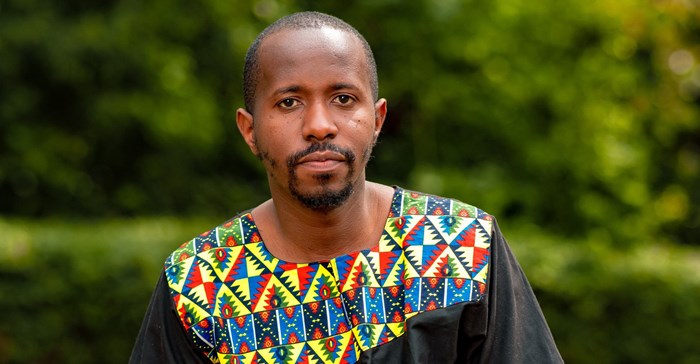
Journalist Carlos Mureithi from Kenya is announced as the first place award recipient for the article How a 'headstrong historian' is rewriting Kenya's colonial history, published in the Christian Science Monitor in January 2023.
Mureithi’s article profiles Chao Tayiana Maina, a Kenyan historian and Dan David Prize winner who is uncovering buried and overlooked segments of Kenya's history under the colonial era.
Earlier this year, the Wikimedia Foundation launched the Open the Knowledge Journalism Awards to celebrate the essential role journalists play in creating well-researched articles that volunteer editors can use as source materials to develop content on Wikipedia and other Wikimedia projects. Their work helps to grow the knowledge base on one of the world's most visited websites.
Between May 3 to June 30, African journalists living on the continent were invited to self-nominate articles they had written that help expand knowledge about Africa under the following categories: Arts, Culture, Heritage, and Sports; Health, Climate Change, and Environment; Women and Youth; Digital and Human Rights. In total 2,110 submissions were received from 37 African countries.
On receiving the news about the award, Carlos Mureithi said: "I'm delighted and honoured that my article has been recognised in first place. The story was inspired by my passion for Kenyan colonial history, and my realisation over the years that a lot of it is hidden or untold. The article is a profile of Chao Tayiana Maina, a Kenyan historian and digital heritage specialist who uses tech to tackle this problem, effectively deepening knowledge and understanding of the country's past.
The story shows the importance of filling historical gaps and making history accessible to people. This recognition validates my work to tell stories of African changemakers and put their voices on the global stage."
Also announced today in second place is Nigeria's Osaruonamen Ibizugbe, for her article FGM: Survivors narrate experiences dealing with absence of the clitoris, published in the Premium Times in January 2023. It highlights the stories of women who have experienced female genital mutilation (FGM), and details its negative effects. It highlights the voices of women who often go unheard.
On receiving the news, Osaruonamen Ibizugbe said: "In my quest for answers, and as a Bini girl who works for women's and girls' sexual reproductive rights, I was inspired to investigate an area that is sometimes left out of the definition of disability: the removal of certain portions of the female reproductive organs due to FGM. The story documents the coping strategies adopted by survivors in dealing with the consequences of being circumcised, ranging from sexual dissatisfaction, pain, and frigidity in their sexual experiences.
"I firmly believe that the media is responsible for telling and amplifying African tales to influence narratives through its agenda-setting role. As a result, it is critical for journalists to ensure a more inclusive and balanced portrayal of varied voices and experiences in their media reporting, encouraging greater understanding and societal change in the process. Who will tell our African stories if we don't?"
Anusha Alikhan, chief communications officer at the Wikimedia Foundation, said: "We congratulate everyone that has been recognised in this year's Open the Knowledge Journalism Awards. Their reporting helps to close knowledge gaps on Wikipedia and ensure that the topics, events and perspectives of Africans are there for the billions who visit the site. Wikipedia articles can’t exist without reliable sources. We need more stories like these that help volunteer editors to grow the knowledge base on Wikipedia so that it is more reflective of our world.”
Currently, only 104,000 articles of over 6 million English Wikipedia articles (1.5%) are about Africa. This issue reflects content gaps in the wider media ecosystem; new information can only be added to Wikipedia by volunteer editors if it is supported by a citation from a published, reliable source. Wikipedia is the largest encyclopedia ever assembled. Its knowledge is built on information that is supported by many sources, including news stories. Having a diversity of stories written by a diversity of people is vital to ensuring the encyclopedia is representative of many views, experiences and perspectives.
Olaniyan Ishola Oulushola, president of Wikimedia Nigeria, a group of Wikimedia volunteers in Nigeria, said: “The Open the Knowledge Journalism Awards, has enabled us to cultivate an impressive repository of more than 2,000 quality articles thoughtfully submitted by African journalists for this prestigious recognition. These articles will help facilitate the curation of thematic stories that can enrich Wikipedia's representation of African heritage. Furthermore, the Awards mirror the cherished African tradition of honoring and motivating those who distinguish themselves in their chosen paths, thus contributing to celebrating the excellence of African journalism."
This year's award categories and recipients were decided upon by the Wikimedia Foundation and a working group of volunteer African Wikimedia editors, as well as a group of external experts from across the fields of media, and academia on the continent.